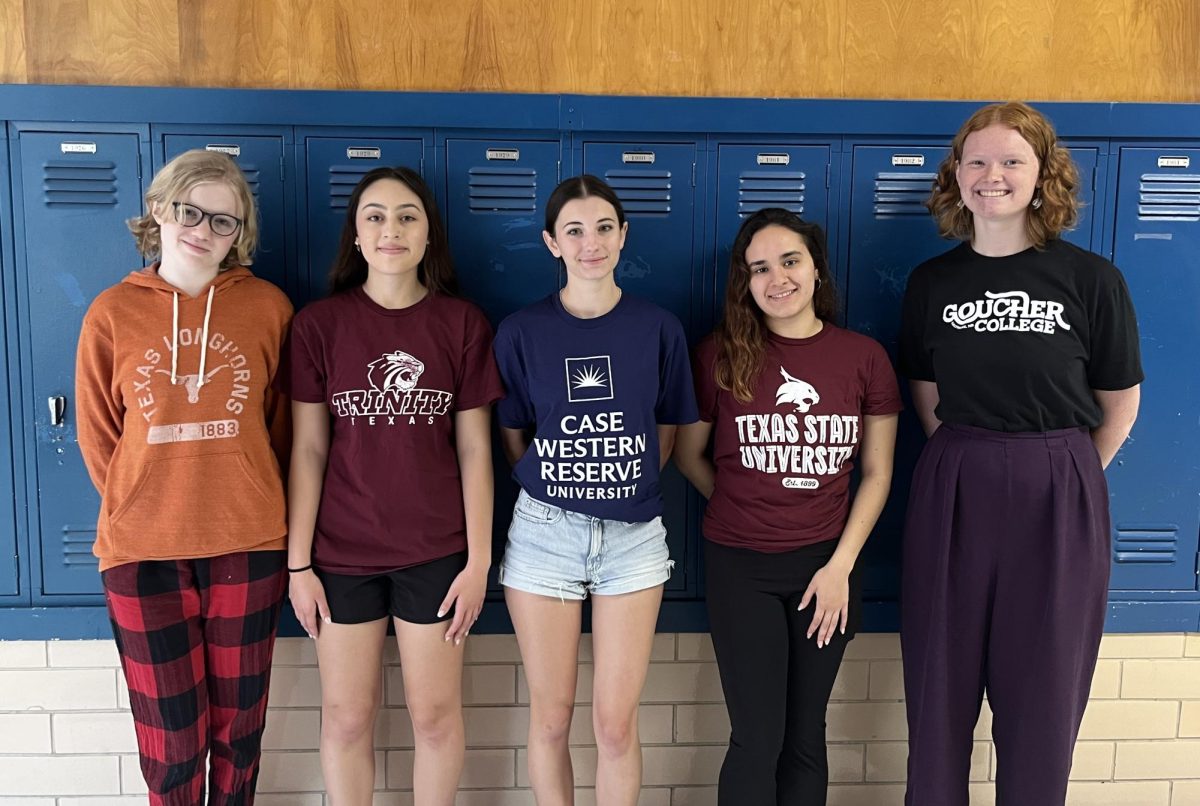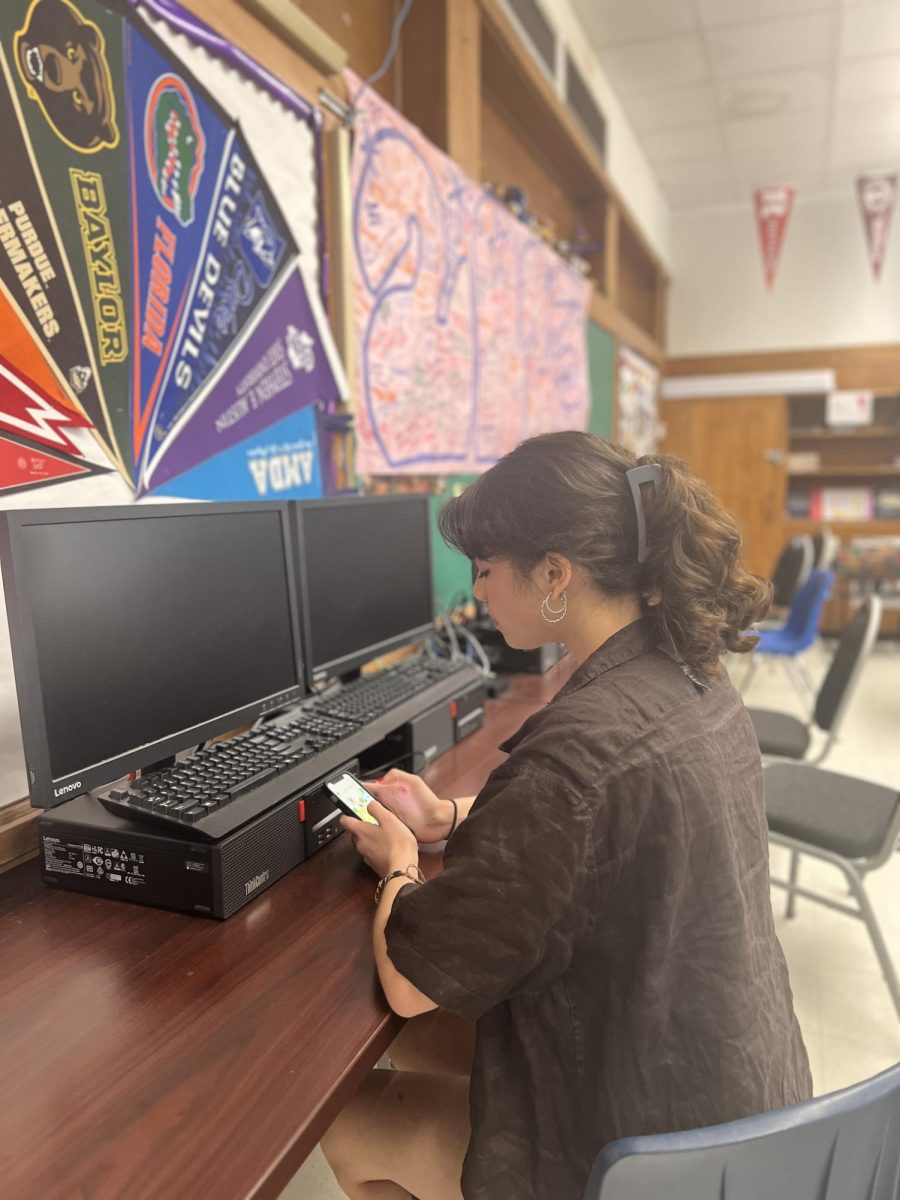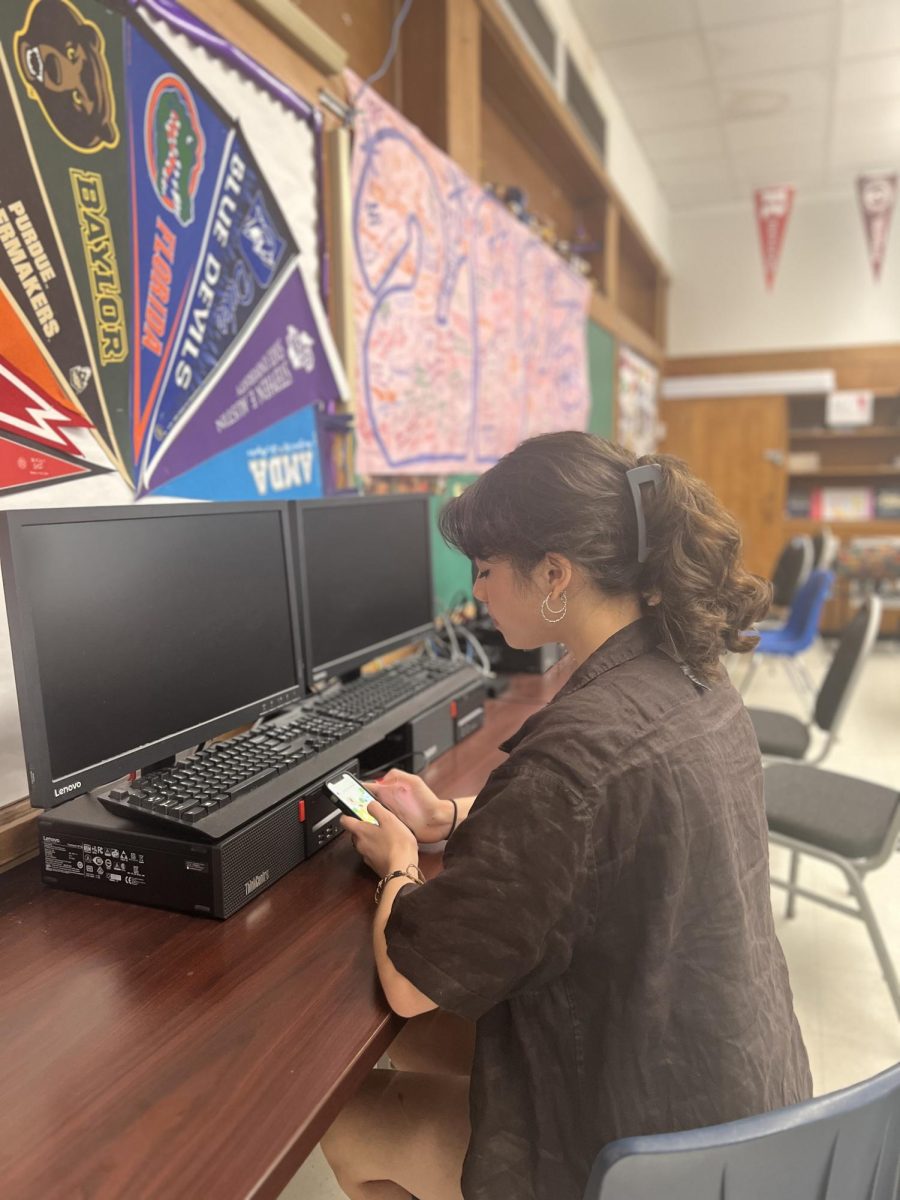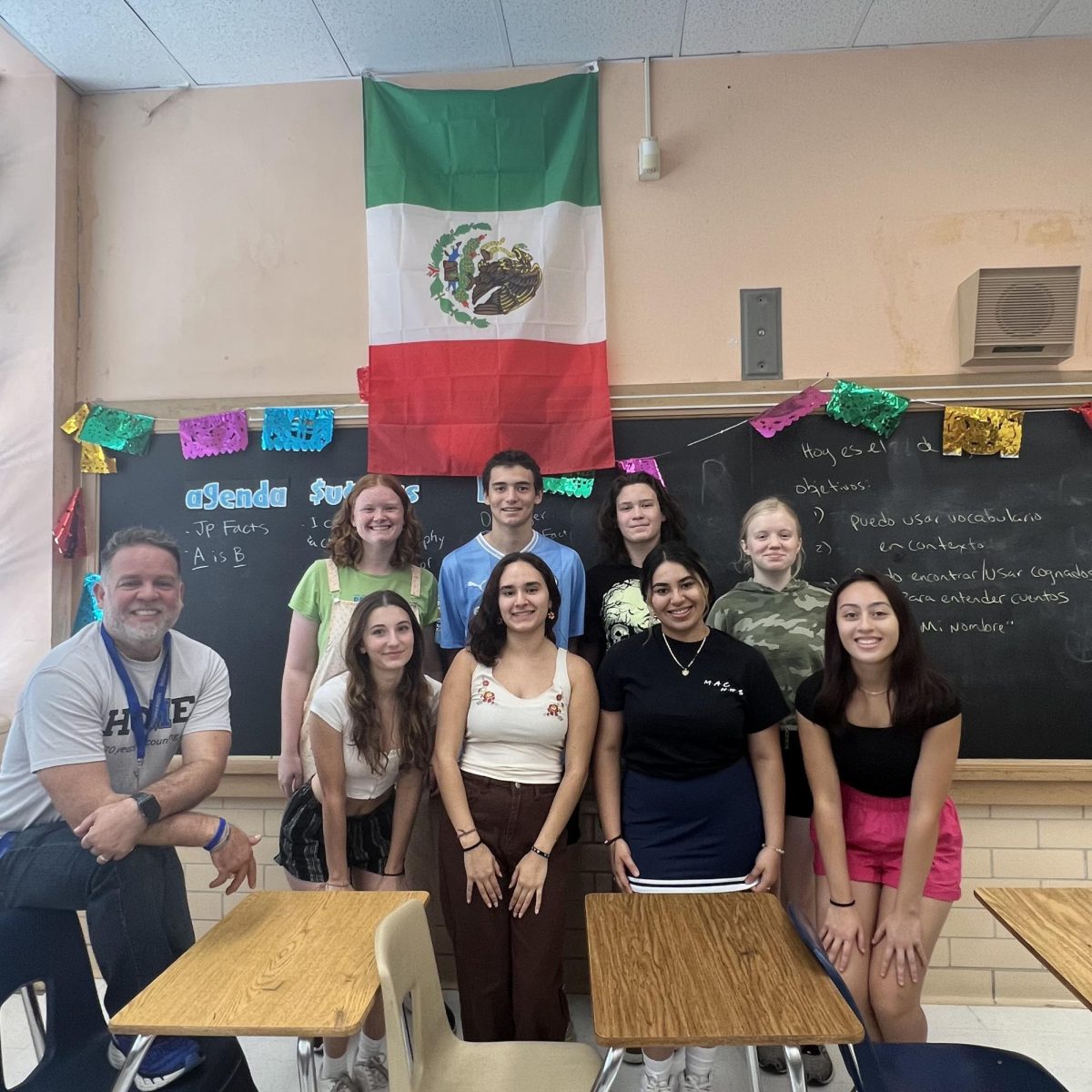The last thing you expect in the second week of school is a protest, especially one against the students of McCallum. However, that is precisely what Mac students were faced with on August 22. Protesting adults shouted at students from the public sidewalk, where buses were lined up to collect students grades 9-12 after school. Not only were these intruders an inconvenience, they actively opposed the views McCallum holds dear.
At McCallum, many students identify as members of the LGBTQ+ community, so this protest was a disconcerting experience. Students who simply wanted to go home, were met with angry shouts and hateful signs suggesting that their very identities were “a sin.” Mac students acted rationally, mostly avoiding the confrontation the protesters so clearly wanted. However, it was difficult for students as they wanted to defend themselves, while the school wanted to avoid conflict. Existing as a queer person is inherently risky, but the culture of love and acceptance at Mac makes many students feel safe being their truest selves. From Spectrum, the LGBTQ+ club at ac, to the continued support of teachers and parents, Mac strives to foster a welcoming community for all students.
McCallum offers a safe space to find community as well as a culture of acceptance and openness that is not always available at home.
We are very open here at McCallum, with who people like or don’t like. We try not to interfere with that.
— anonymous student
“We are very open here at McCallum, with who people like or don’t like,” an anonymous student said, “We try not to interfere with that.”
Located in central Austin, McCallum maintains a very liberal mindset held by students, teachers, and administrators who are willing to provide community and security to those who need a space to express themselves. This is vital because many students don’t receive the same acceptance in their home lives.
Latine cultures and homes have been slow to accept the LGBTQ community due to the traditional religious nature found in many countries of origin. A queer student from Ecuador, who wants to remain anonymous, can relate to this, as being queer is frowned upon in her country of origin, as well as in her household. But in her community at McCallum, she’s able to be open about her identity. This is a common theme not only for students at McCallum, but also teachers. An anonymous teacher at McCallum considers the school to be a safe and accepting environment she never experienced growing up.
“In school and with my students I feel I can be who I am. I grew up in a way that we had to hide who we really were, but I like that in this school everyone can all be who they really are.”
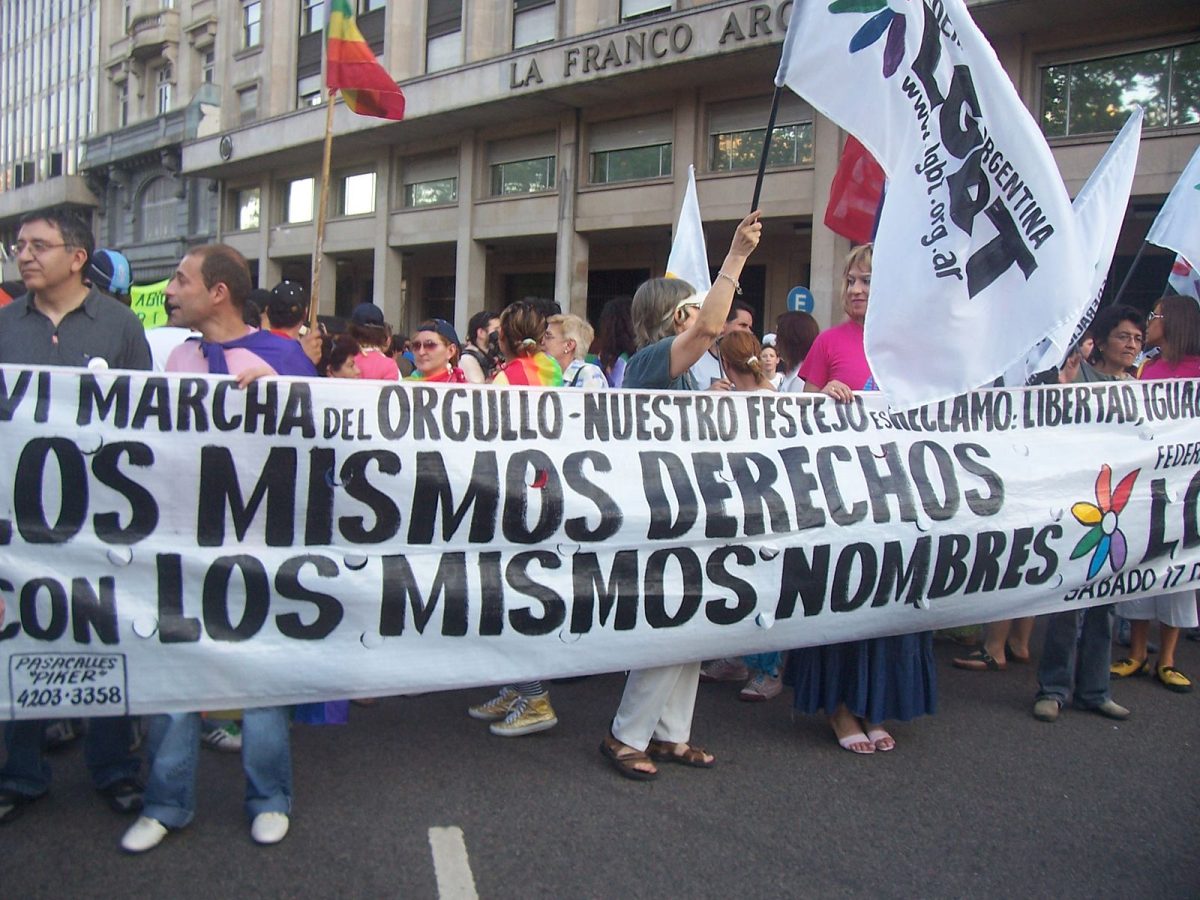
Of the thirty three countries in Latin America and the Caribbean, gay marriage is only legal in nine. Argentina was the first Latin American country to legalize gay marriage in 2010. It was followed by Brazil, Uruguay, Colombia, Ecuador, and Costa Rica, with Mexico, Cuba, and Chile only following suit last year (2022). There are still twenty four countries yet to legalize gay marriage, although many have established recognition and protection for LGBTQ+ citizens. Additionally, a number of Latin American countries, including Argentina, Chile, Colombia, Ecuador, and Uruguay, have passed Gender Identity Laws that allow trans people to correct their legal documents with their preferred name and gender marker (Campbell), but lots of progress is yet to be made.
What is influencing this change? Well, an observation to make is all 9 Latin American countries that legislated equal marriage rights were under some form of military dictatorship in the twentieth century. This long-term social control of a population may have created a need for liberation. This progress wasn’t possible without years of political and social change. Another influence of this social change was the gay rights activism that arose in the 20th century in Western countries.
I grew up in a way that we had to hide who we really were, but I like that in this school everyone can all be who they really are.
— anonymous McCallum teacher
Moreover, queer exiles returning to Argentina from Europe were exposed to intellectual trends of legitimizing gay rights, according to Harvard Review of Latin America. Despite laws in place for LGBTQ+ protection in many countries, popular opinion may not yet have changed in Latin America, especially in some of the countries with more recent legal changes. Latine and Latine-American LGBTQ+ people may be suffering from the disapproval of their family or their ancestral country.
McCallum is a very open and accepting school, so we don’t always consider that not everyone’s family is as accepting as our community. There are many people, students and adults, that have found a safe community at this school that they don’t have in other parts of their lives. It’s especially difficult for some Latine students that don’t have the support of their country of ancestry/origin, and, by extension, their family. Not all countries have the same level of protection for their LGBTQ+ communities but our world is still changing. The protests were an indication that not everyone shares McCallum values. To see the bright side, students were inspired to express their support for the LGBTQ+ community, and hopefully this support will continue for each and every one of McCallum’s students.




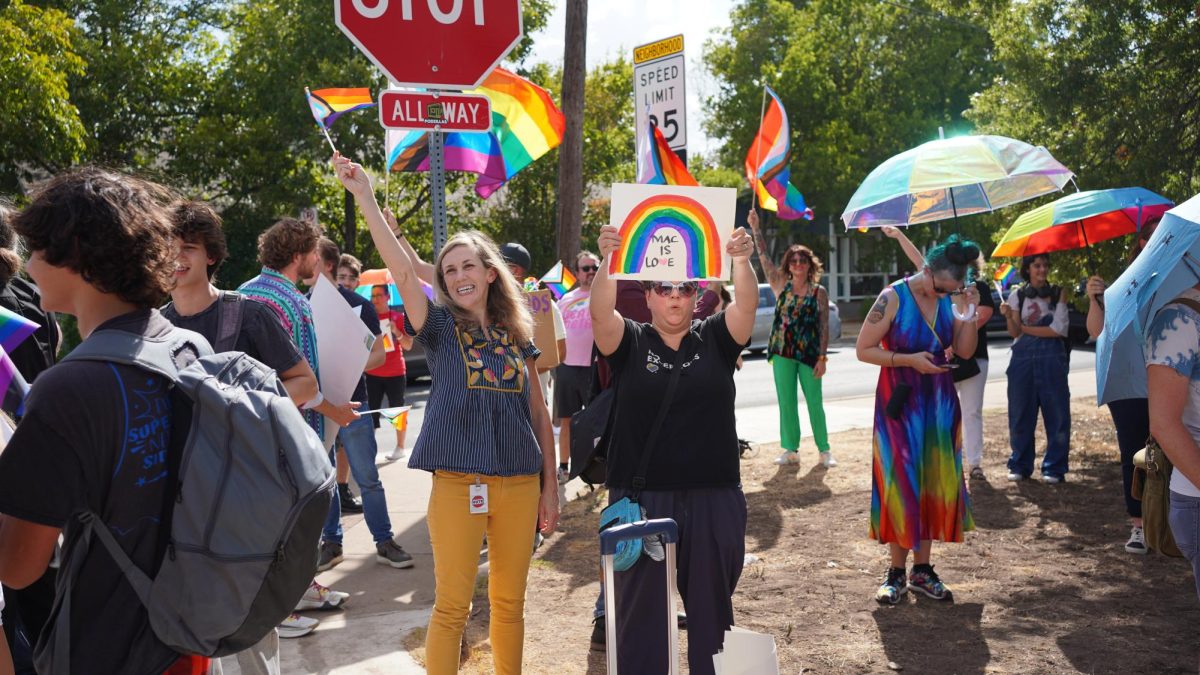
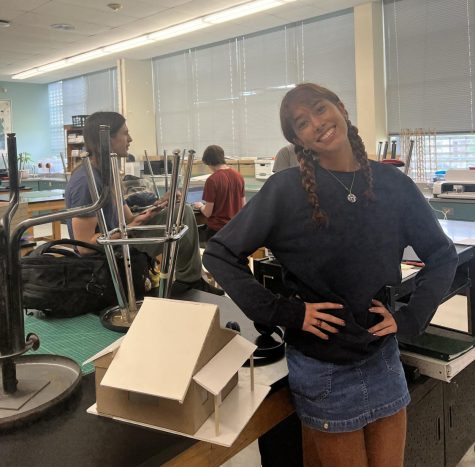
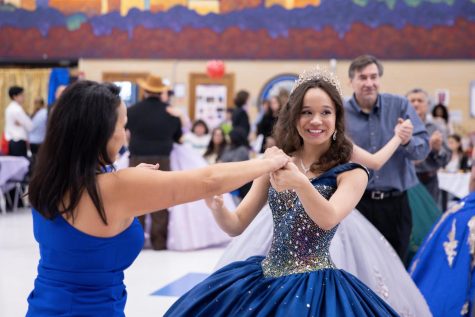
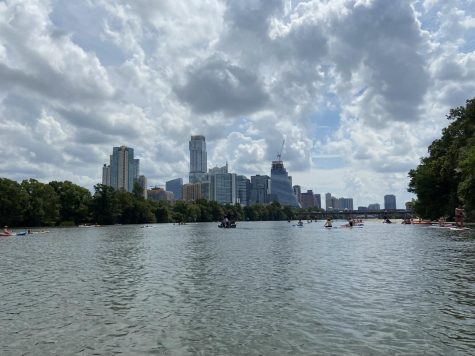
![DANCING QUEEN ONLY 15: The Mccallum quinceañera took place Saturday May 18 in the cafeteria. Students who danced at the quinceañera practiced for weeks during lunch and after school with the help of Señora A to perfect this special moment. “I signed up for fun and for the dress originally, but I actually made a lot of friends, and it helped me want to come back to practice,” said Elizabeth Peables, a freshman quinceñeara. “It’s been stressful, but it always works. We stayed very late yesterday [the day before the event], but today it feels like everything came together.”
Caption by Nellie Eschberger with reporting by Beatrix Lozach.
LA REINA DE BAILE, SOLAMENTE TIENE 15 AÑOS DE EDAD: La Quinceñera de McCallum fue el 18 de Mayo en la cafetería. Estudiantes que bailaron en la quinceañera practicaron por semanas durante el almuerzo y después de la escuela con la ayuda de la Sra. A para perfeccionar este momento especial.
“Originalmente me inscribí para divertirme, y por el vestido, pero actualmente hice muchos amigos y me ayudó a querer regresar a la práctica.” Dijo la estudiante de primer año Elizabeth Peables. “Ha sido muy estresante, pero siempre funciona.” “Nos quedamos muy tarde ayer el día antes del evento pero hoy se siente que todo está cayendo en forma.”
Leyenda por Nellie Eschberger con reportaje de Beatrix Lozach. Traducción por Maverick Palacios.](https://macshieldonline.com/wp-content/uploads/2024/06/53732328578_3ee2526f55_o_53769409497_o-1200x675.jpg)

